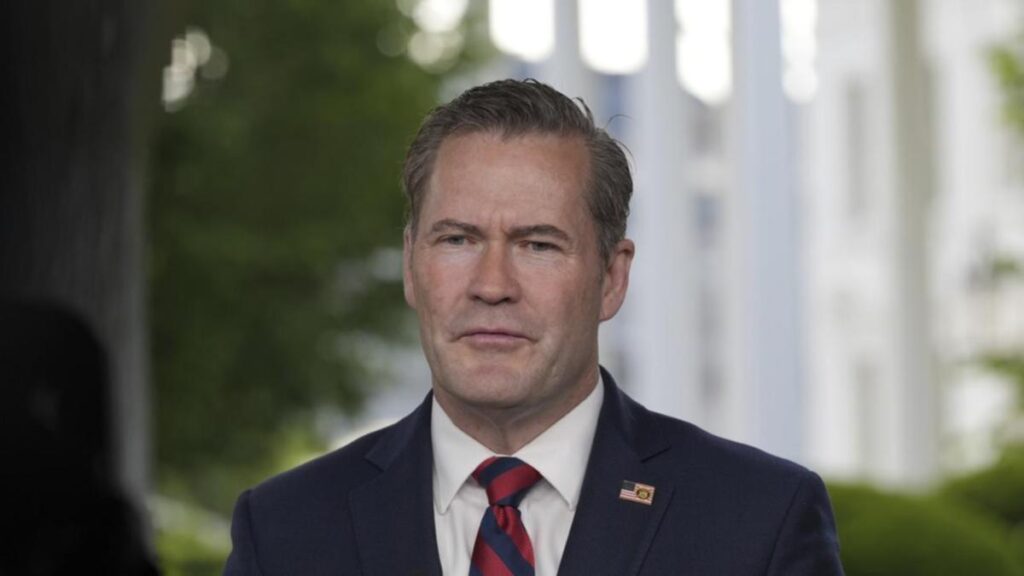US President Donald Trump’s national security adviser Mike Waltz is being forced out of his job, four people briefed on the matter say, in the first major shake-up of Trump’s inner circle since he took office in January.
Waltz’s deputy, Alex Wong, an Asia expert who was a State Department official focused on North Korea in Trump’s first term, is also leaving his post, two people told Reuters.
Waltz, a 51-year-old former Republican lawmaker from Florida, faced criticism inside the White House when he was caught up in a March scandal involving a Signal chat among top Trump national security aides.
It was not immediately clear who would take over from Waltz but one option included US special envoy Steve Witkoff, who has been involved in both Russia-Ukraine diplomacy as well as the Middle East, one of the sources said.
Deputy Secretary of State Christopher Landau was also considered a possible option, the same person said.
The National Security Council did not immediately reply to a request for comment.
The national security adviser is a powerful role but one that does not require Senate confirmation.
The NSC is the main body used by presidents to co-ordinate security strategy, and its staff often make key decisions regarding the United States’ approach to the world’s most volatile conflicts.
Waltz was blamed for accidentally adding the editor of The Atlantic magazine to a private thread describing details of an imminent US bombing campaign in Yemen.
The Atlantic reported on the mishap.
At a subsequent cabinet meeting with Waltz in the room, Trump expressed his preference for holding such conversations in a secure setting, a clear sign of his displeasure.
But he and others in the White House expressed confidence in Waltz at the time.
Waltz also attended Trump’s televised cabinet meeting on Wednesday.
Democrats who were outraged about the Signal scandal welcomed the news about Waltz.
“About time,” said Democratic Senator Adam Schiff.
The Signal controversy was not the only mark against Waltz, sources said.
A person familiar with the cabinet’s internal dynamics said Waltz was too hawkish for the war-averse Trump and was seen as not effectively co-ordinating foreign policy among a variety of agencies, a key role for the national security adviser.
“The system isn’t running properly” under Waltz, said the source, who spoke on condition of anonymity.
Waltz’s ouster could be of concern to US partners in Europe and Asia who have seen him as supportive of traditional blocs such as the NATO military alliance and tempering more antagonistic views toward them from some other Trump aides, according to one foreign diplomat in Washington DC who spoke on condition of anonymity.



